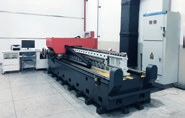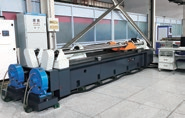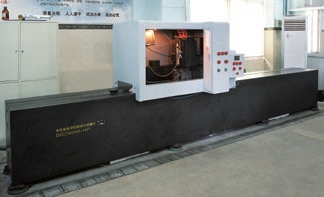Multi-Dimensional Material Inspection Process
To ensure material consistency and stability from the source, we have established a comprehensive quality inspection process that covers the entire production lifecycleтfrom raw material intake to semi-finished machining, post-heat treatment, and final product shipment.
1. Incoming Material Inspection
Spectral Analysis: Verifies chemical composition using optical emission spectrometers

Metallographic Examination: Observes microstructure with metallurgical microscopes
Initial Hardness Testing: Screens out soft spots or material impurities to ensure baseline mechanical integrity
2. Post-Heat Treatment Performance Validation
Rockwell Hardness Test: Ensures proper hardness levels (HRC 58т64) are achieved
Non-Destructive Testing (UT/MPI): Ultrasonic Testing (UT) or Magnetic Particle Inspection (MPI) to detect internal cracks or inclusions
Dimensional Stability Testing: Confirms deformation remains within specified tolerances after heat processing

3. Wear Resistance and Fatigue Testing (Sampling)
Simulated Load Life Testing: Evaluates guideway durability under actual load conditions
Sliding Wear Test: Confirms surface hardening depth and uniformity to ensure long-term wear resistance
Digital Inspection and Closed-Loop Precision Control
We have established a fully digitalized inspection and traceability system, enabling closed-loop feedback for the machining data of every guideway we produce. This ensures real-time quality control and continuous precision improvement across the entire production line.
Laser Interferometers: Monitor guideway length deviations in real time with high accuracy

Coordinate Measuring Machines (CMM): Precisely inspect the positional relationships of critical surfaces
Surface Roughness Profilometers: Scan the microstructure of the guideway raceway to ensure smooth rolling contact
QR Code Tracking System at Each Workstation: Links each process step, machine, and operator, enabling full-process traceability and digital archiving of machining precision
Through our тMachining т Inspection т Feedback т Correctionт closed-loop control mechanism, we achieve ongoing optimization of guideway precision and reliable high-volume production with consistently high standards.